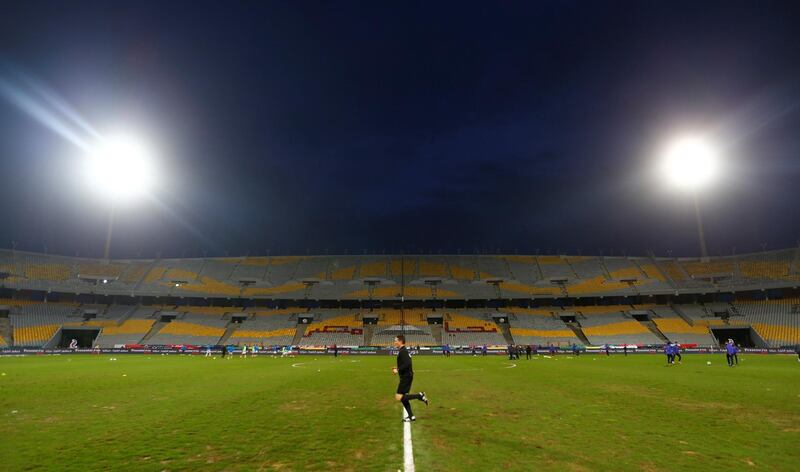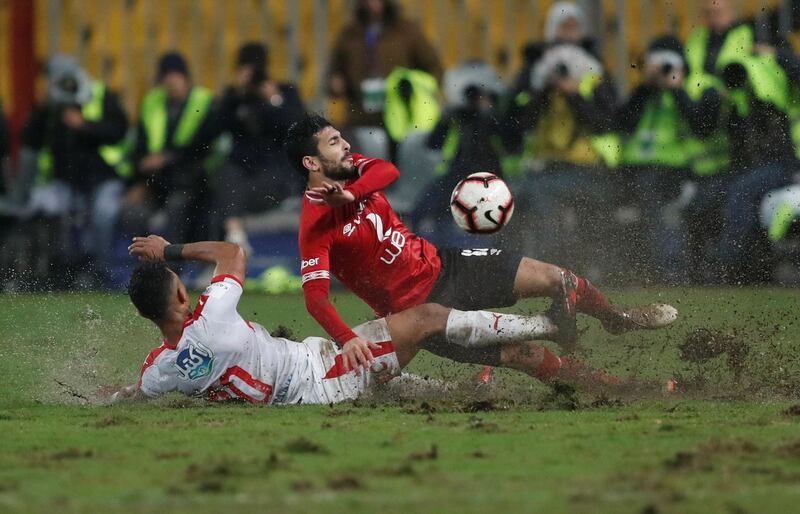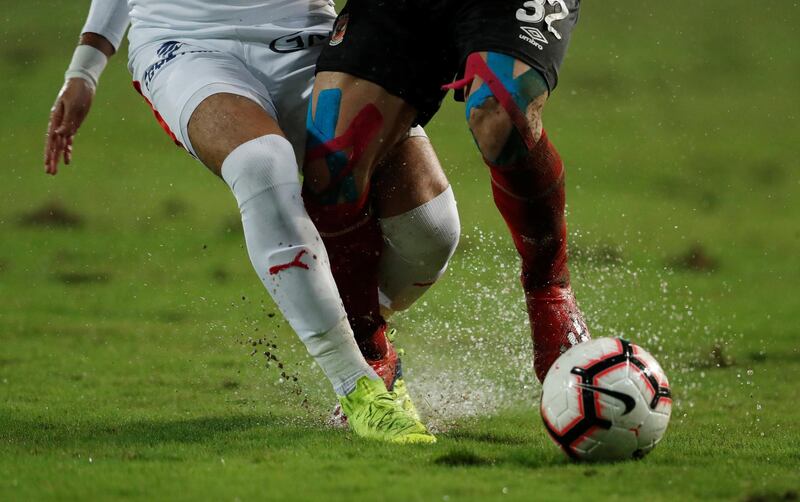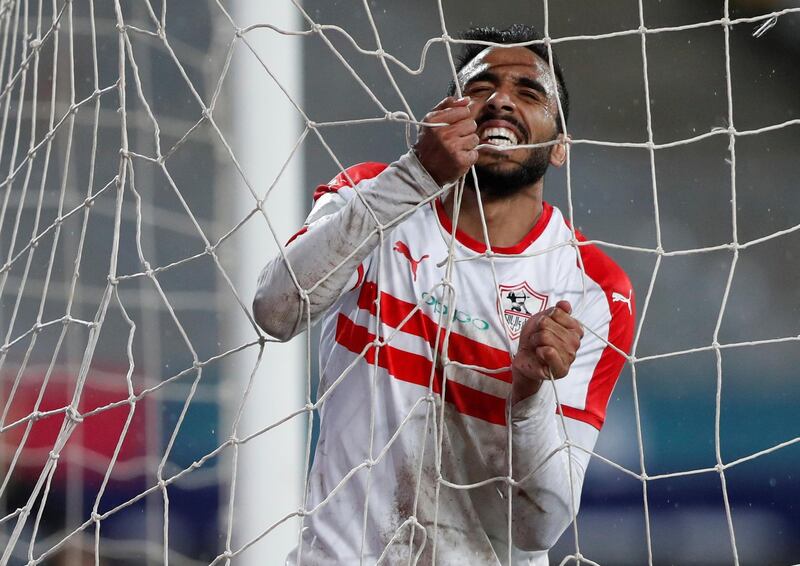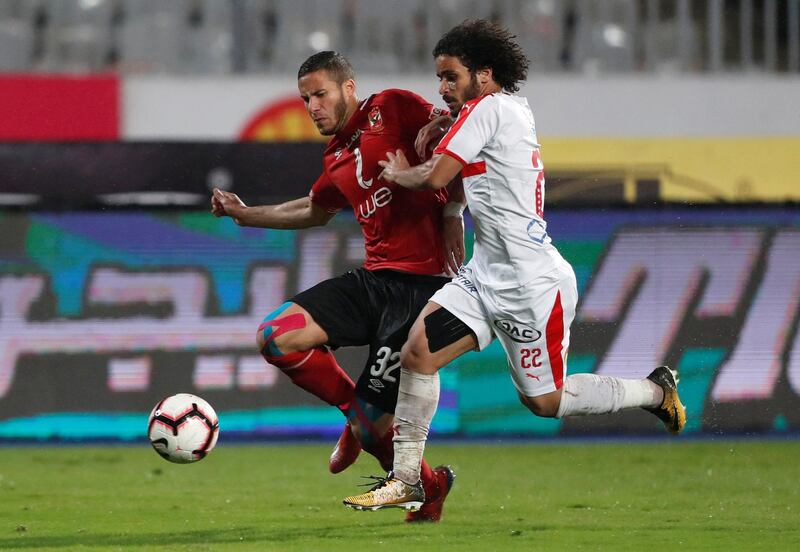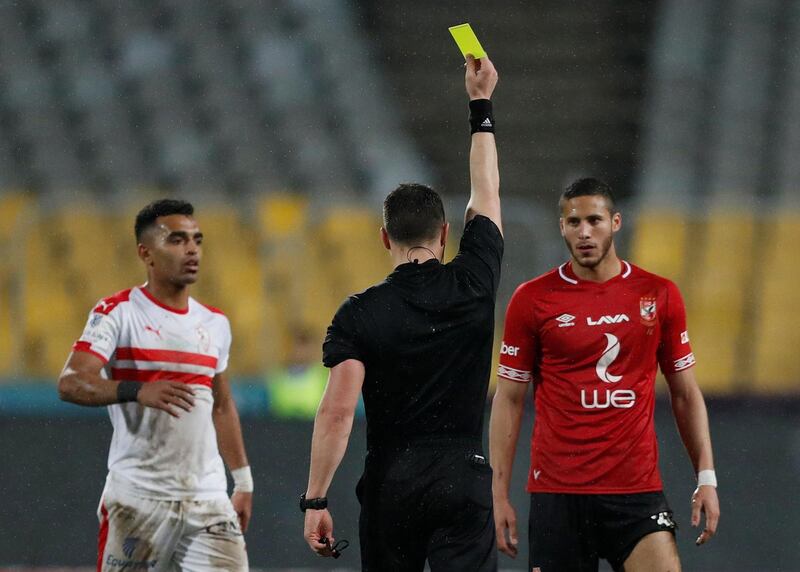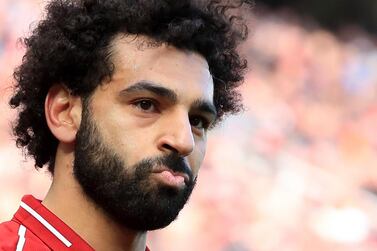The terraces of the 70,000-seat Borg El Arab stadium were eerily empty. The pitch was so inundated with rainwater that every sliding tackle made a splash.
Perhaps fittingly, Saturday night’s match – Egypt's top football derby between Zamalek SC and Al Ahly SC – was a tedious affair that ended in a scoreless draw.
With three months left before Egypt hosts the African Cup of Nations, the state of the sport in the football-mad nation is less than healthy, something that analysts attribute to mismanagement, the enduring legacy of a pair of recent deadly incidents that killed scores of fans and a persistent unsportsmanlike behaviour by club officials and partisan media figures.
The incidents – in 2012 and 2015 – meant that police have been consistently erring on the side of caution to ensure they are not repeated.
Officers, for example, allowed only 15 fans from each side to attend Saturday's derby between Cairo powerhouses and arch-rivals Zamalek and Al Ahly.
It is a laughably low number given the enormous following the two clubs enjoy in this nation of 100 million.
However, police and fans of the two clubs have had a history of enmity that is rooted in large part in their participation in violent clashes between protesters and security forces during the 2011 uprising against longtime ruler Hosni Mubarak and violence later that year.
Court rulings have since outlawed the associations grouping fans of the two clubs: Zamalek's White Nights and Al Ahly's Ultras.
Prior to 2012, an on-pitch clash between Al Ahly and Zamalek would mean days of anxious anticipation, a capacity crowd at the 100,000-seat Cairo International Stadium, millions glued to their television sets at home and at street cafes and near-empty streets across the nation.
But the ban on fans going to matches appears to have taken the life, and the fun, out of a local derby that has traditionally divided the nation, at least on the day, into two camps.
"The harm done by barring fans is perhaps less than the potential damage that could happen if the gates are flung open for the fans," explained prominent football commentator Yasser Ayoub, echoing the police's argument.
Matches involving the national squad don't evoke the same kind of tension and animosity felt by rival club supporters and which occasionally boil over into violence, he explained. "The African Cup of Nations will likely be an exceptional episode that's unrelated to what has happened domestically."
He, however, faulted all parties for the continuing ban on fans that has been in force, albeit on-and-off, since more than 70, mostly young Al Ahly fans, died in a riot at the city of Port Said on the Mediterranean in February 2012.
"The media has not been less provocative, officials have not been calmer and the referees have not grown in efficiency," he said.
Karim Ramzy, a football analyst and host of a popular TV talk show, was happy to give authorities the benefit of the doubt when it comes to barring fans from matches.
"Police say security is still not 100 per cent and there is still tension between rival club fans. And maybe they know something they are not sharing with us."
But Borg Al Arab stadium, he retorted, is relatively easy to police since it's located well away from residential districts. "For a country that is about to host a major sports tournament, they should at least get some practice now for policing fans at stadiums," he said.
Borg Al Arab, near the Mediterranean city of Alexandria, is not one of the six venues of the upcoming African tournament, but the sorry state of the pitch that was turned into a large puddle after relatively moderate rainfall over the weekend underlined the massive task ahead for authorities to prepare the six for the 24-nation tournament kicking off in June.
"Today the players played at a swamp," commented Amr Adeeb, a popular talk show host on the Saudi-owned MBC network.
Still, not all is lost.
The government appears to be taking no chances with the tournament's success, something that is clearly evidenced by the serious interest President Abdel Fattah El Sisi and his prime minister are taking in the event.
Bringing Egypt closer to Africa has been a cornerstone of Mr El Sisi's foreign policy and a successful African Cup of Nations in his country could go a long way in enhancing Cairo's standing in the continent during a year when the Egyptian leader assumed the annual chairmanship of the African Union.
"It is an opportunity to market the development that has taken place in Egypt in recent years," Prime Minister Mustafa Madbouli said Saturday at the end of a tour of ongoing works in Cairo's stadium, where the opening match and the final will be played.
He was apparently referring to a string of massive infrastructure projects undertaken by Mr El Sisi since he assumed office in 2014.
Authorities have not released precise figures or estimates on how much hosting the tournament is costing Egypt, but unofficial estimates speak of billions of Egyptian pounds, with the military taking the lead in supervising the preparations and ensuring that they are on schedule.
Egypt, a record seven-time African Cup champion, hosted the continental tournament four times, the last of which was in 2006. Security is a top priority for the El Sisi government as it continues to battle Islamic militants in the northeast corner of the Sinai Peninsula and strives to restore its lucrative tourism sector after it slumped in the years of turmoil that followed the 2011 uprising.

